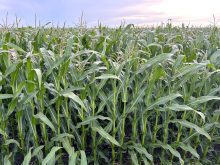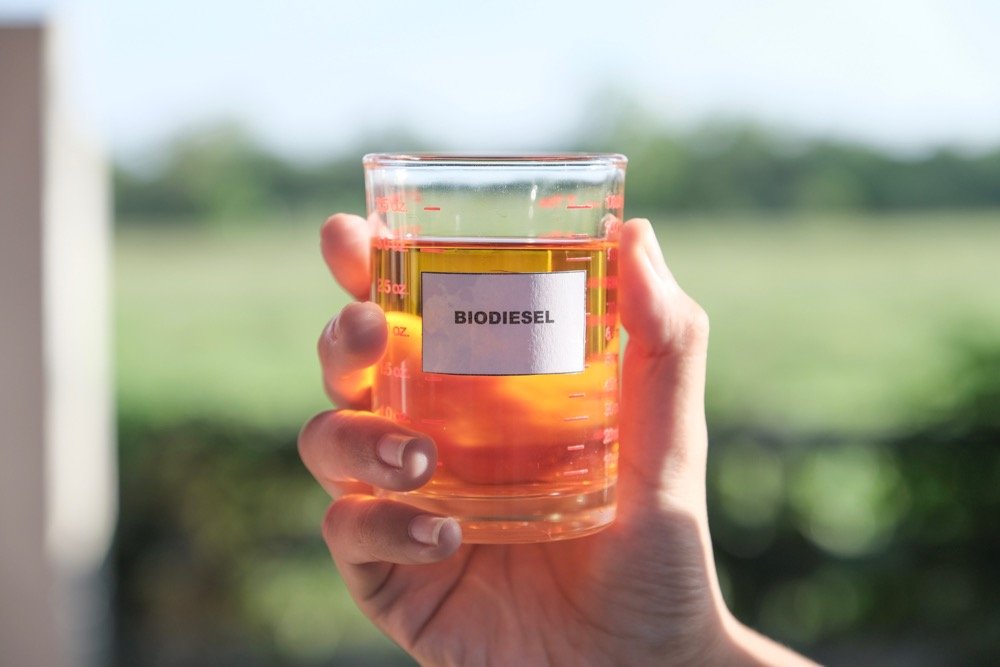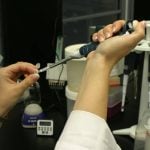Grain Farmers of Ontario and SGS Canada took a risk in creating the Grains Analytical Testing Laboratory, as a partnership bringing wheat testing to a province with a comparatively small wheat crop.
After eight months, and a first harvest of wheat analytics, the Guelph lab’s manager says they have found there is interest in the project and its services from across the country — and from industry areas they didn’t expect.
For example, lab manager Paolo Santangelo said, wheat breeders can get an understanding of initial functionality of the varieties they are testing, through a local lab, without having to send that proprietary germplasm to labs in the U.S.
Read Also

ICE weekly: China, soy complex lift canola prices
China’s upcoming lifting of tariffs and rising soyoil prices lifted Canadian canola values for the week ended Feb. 4, 2026.
“We didn’t realize how much of a void there was in the ability to serve the Canadian industry,” said Santangelo during an interview at the Grain Farmers of Ontario (GFO) March Classic.
The Grains Analytical Testing Laboratory is a unique partnership between the GFO and Mississauga-based SGS Canada, a major laboratory testing company, to provide quicker response testing of wheat quality than has been previously available for Ontario wheat.
The partnership is the first of its kind between a farmer group and a laboratory company, and that’s a point of pride, GFO CEO Barry Senft said at the March Classic.
The Canadian International Grains Commission (CIGI) and the Canadian Grain Commission (CGC) both also provide grain quality testing, but without the mandate to prioritize Ontario grain.
After the 2016 harvest, Santangelo said, growers had wheat quality results to the Ontario industry in October, when it would usually be December or into the new year before Ontario wheat quality results would be available to millers and bakeries.
When growers had to wait until a half year after harvest, the millers and bakeries were already long into the usage of the crop and would manage their risk by purchasing western Canadian wheat, Santangelo said. Now they’ll have the information about the Ontario harvest in time to make buying and contracting decisions.
There are few options for private laboratory testing of wheat in Canada, with most of the work going to the U.S., so customers, such as from the Prairie Grain Development Committee, have come to the Guelph lab.
Santangelo said the lab provides services from breeder to plate, including for farmers looking to know their protein and falling number, for grain elevators looking for quality information and then for millers and bakeries.
He also expects to be able to help with research projects involving wheat, now that the local lab is there to partner with them.
Wheat was the first crop to be analyzed at the lab, but Santangelo said GFO’s plans include the ability to test corn, soybeans and barley as well.
Barley quality information could be used by microbreweries that wish to emphasize an Ontario product, and corn quality information could also be valuable.
Adding new crops to the lab’s roster will take some learning, similar to the work of the past year that Santangelo said the lab’s employees had to undertake in mastering and validating the equipment.
Processes also have been improved.
“To the (GFO) membership, we’ve learned a lot and have taken the necessary steps to improve on our efficiencies and capabilities for the coming year,” said Santangelo. “We’ve solved some of the issues and we’re better now than we were before, as far as the ability to serve industry.”
The unique private/farmer organization partnership model has created interest from across the country.
“I’ve received requests for conversations about such a relationship from other wheat commissions, from outside of Ontario, out west; they have shown interest in knowing how it serves the membership.”
— John Greig is a field editor for Glacier FarmMedia based at Ailsa Craig, Ont. Follow him at @jgreig on Twitter.















